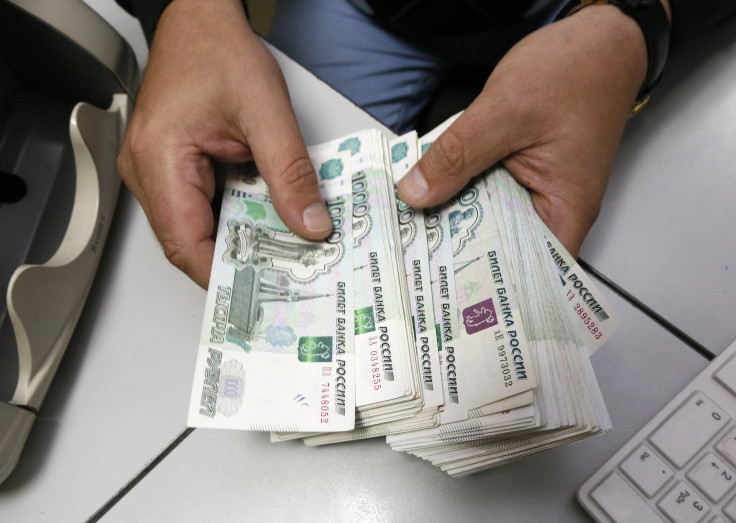Russia Ruble Crisis: Currency Continues To Fall, Ukraine Conflict And Falling Oil Prices To Blame

The Russian ruble Monday extended its decline, weakening another 1.9 percent to 62.74 against the dollar, making it the world’s worst-performing currency since Russia annexed Crimea in March. At the same time, the yield on Russia’s five-year ruble bonds rose to 16.26 percent, according to Bloomberg Businessweek.
Analysts have blamed the Ukraine conflict as well as falling oil prices for the country’s worst currency disaster since 1998, when Russia defaulted. “Oil remains the key factor pressuring the Russian financial markets,” Slava Smolyaninov, the chief strategist at UralSib Financial Corp. in Moscow, told Bloomberg Businessweek. “The Fitch downgrade brings Russia closer to the verge of the non-investment grade status, clearly. The bond market has already priced in Russia far below the current ratings.”
Oil has long been the Russian government’s main export earner, but its value has halved since June 2014 after the country was thrown into a recession following fighting in Ukraine. In December, the ruble had its steepest drop in a single day since the 1998 Russian financial crisis, plummeting more than 11 percent versus the dollar, according to Reuters. Financial experts wondered if the country was headed for another currency collapse similar to the one 16 years ago that saw Russians’ wages dip to their lowest level since the collapse of the Soviet Union.
Monday’s continuing decline didn’t come as a shock to some. Many Russians haven’t returned to work since the Orthodox Christmas holiday, meaning the markets have been slow to get going in the new year. “The ruble, in my view, has not really caught up with the oil move,” Dmitri Petrov, an analyst at Nomura Holdings Inc. in London, told Bloomberg last week. “We may see a more meaningful correction when the locals become more active next week.”
© Copyright IBTimes 2025. All rights reserved.





















